
Modern Literature from the Middle East - The Reading List
The Middle East has a rich literary tradition, which is steadily gaining a foothold in the West. Modern literary works deal with contemporary issues, such as the legacy of colonialism, the struggles between traditionalism and modernity, the place of women in society and the war in Israel/Palestine.
To highlight the diversity of contemporary Middle Eastern literature and society, we have selected a number of iconic works from the past century until the present. Not limited to place or genre, this list incorporates literature from different parts of the Middle East with different themes, allowing the reader the freedom to explore this rich literary tradition from multiple angles.
All books in this list are part of Leiden University Libraries' (UBL) collections. Borrow your book by following a link below a book title, or search for sources via our Catalogue.

Naguib Mahfouz, The Cairo Trilogy
1956–1957
Mahfouz is the only Arab author to win the Nobel prize for literature, and The Cairo Trilogy is the most important work of this "father of Arabic literature". The books follow the al-Jawad family over three generations, from WWI to the 1950s. As each volume focuses on one successive generation, the series explores the massive social and political changes facing Cairene society. The story begins with Ahmed abd al-Jawad, who rules over his family with an iron fist, while allowing himself an indulgent lifestyle. The story then moves on to a younger generation's quest for love and independence in a shifting society. In the final book, as the political upheavals in the country reach a climax, Ahmed’s grand-children struggle to shape their identity in the midst of a transforming Egypt. The trilogy cleverly shows the tug of war between modernity and tradition, and between family values and individual values: themes that strongly reflect the transformations of the Middle East after the fall of the Ottoman empire.
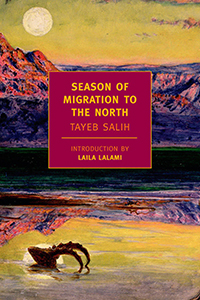
Tayib Saleh, Season of Migration to the North
1966
In this novel, Saleh intertwines themes that are close to the hearts of many in the Global South, focusing on the destructive legacy of colonialism, being an exile and the tensions between traditionality and modernity. Through his use of exquisite lyrical prose, Saleh gently carries the reader through these delicate matters. The story revolves around Mustafa Sa’eed, coming from a small Sudanese village and thrust into British academic society. What is meant to be a story of success, however, slowly unravels to uncover the deep psychological challenges that come with this change. Without portraying him as a saint, Saleh’s story allows for a clear and wide angled view of the psychological complexity of Sa’eed’s life. Because Saleh’s reveals what it means to live in a postcolonial world, Season of Migration of the North has been named as one of the most important works in Arab literature in the 20th century.
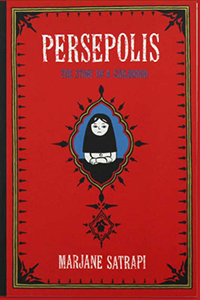
Marjane Satriapi, Persepolis
2000-2003
Originally published in French, this graphic memoir is still considered one of the most important works to emerge out of Iran. Persepolis is a humorous, yet candid, autobiography of Marjane Satrapi, a nine-year-old child living in Tehran in the 1980s. The story follows Satrapi through adolescence as Iran’s political and cultural values take a different turn. She depicts the innocence of a child, and the horrors of war in a realistic fashion, and exposes hypocrisies on all sides of the conflict, and even her own shifting ideals. This is a story about how being an exile can make one feel alienated, both abroad and at home. This book is highly recommended to anyone who wants to learn about Iran’s recent history and what it feels like to be a child during war.

Gibran Khalil Gibran, The Prophet
1923
Originally published in 1923, The Prophet is a universal classic that has been translated into 50 languages. With that, Gibran, a Lebanese immigrant in the United States, has become one of the best-selling writers of all time, directly after Shakespeare and Lao-Tzu. His book consists of twenty-six philosophical poetic essays on topics ranging from love and beauty to work, joy and sorrow. Borrowing elements from Christian mysticism, Islamic sufism and other spiritual philosophies made it resonate with readers of multiple backgrounds, and has turned Gibran into a monumental figure in the Arabic literary tradition.
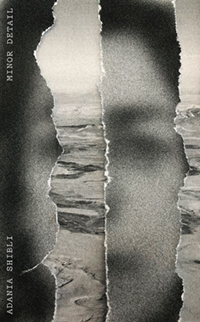
Adania Shabli, Minor Detail
2017
Longlisted for the international Booker Prize in 2021, this critically acclaimed novel centres around a ‘Minor Detail’ that occurred in the summer of 1949, one year after the war between Palestinians and Israelis, known as the War of Independence for Israel and the Nakba for Palestinians. The title refers to the terrible fate of a young Palestinian woman at the hands of Israeli soldiers, which later becomes the obsessive point of investigation of Ramallah, a young Palestinian woman and the main character in the second part of the book. Due to its subject matter, the book has been subject to controversy, but nevertheless remains an essential read for anyone who wants to the better understand the Palestinian experience of the war.
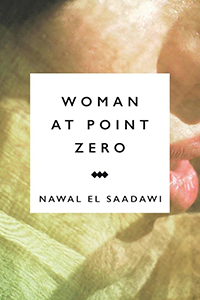
Nawal Saadawi, Women at Point Zero
1977
Saadawi is perhaps the most renowned feminist in the Middle East. Her social activism and advocacy for women’s rights in Egypt led to her imprisonment and the banning of her books, yet she continued write and fight for social justice. A psychiatrist by training, Saadawi witnessed firsthand the plight of women in psychiatric wards. Women at Point Zero is based on the life-story of one of these women, Firdaus, who was on death row for the killing of a pimp. While the book is considered creative fiction, Firdaus was a real person, who told Saadawi about the abuse she had endured by men since childhood. Through Firdaus’s story, the reader gets a sense of the gravity of the oppression of women at the time. However, this novel is essentially one about resistance and empowerment. Firdaus’s fight for dignity and agency in this novel shows just how complicated the struggle for gender rights and social justice can be.
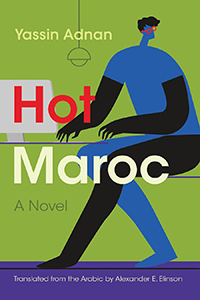
Yassine, Hot Maroc
2016
A literary work that describes contemporary socio-political atmosphere in the Middle East is Hot Maroc. Through the story of Rahal Laaouina, Yassine takes us on a satirical journey through the social, cultural and political issues in modern-day Morocco. Rahal is a timid, marginalized and slight man who compensates his feelings of inferiority with the online fame he garners under the pseudonym “hot maroc”. Online, he spreads rumours and exposes his friends and even public figures. Through this plot, Adnan highlights the fast pace at which Morrocco is changing, and how the country deals with these changes. It also explores universal themes such as cyber-bullying and political corruption. Finally, it is a clever satire, in which Adnan interweaves several stories to reflect the complexity of the social upheavals in Morrocco. Apart from being a page-turner, Hot Maroc is an informative novel about present-day Morrocco.
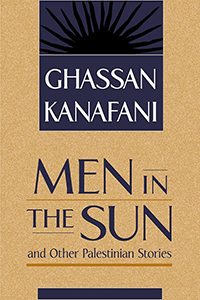
Ghassan Kanafani, Men in the Sun
1963
Kanafani is one of the most prominent Palestinian writers and leading figures in Modern Arabic literature. In 1948, the then twelve-year-old Ghassan and his family were driven from their hometown by Zionist militias. He processed his experiences in this novel, which would become a classic of Palestinian literature. Men in the Sun is the harrowing story of three Palestinian refugees who try to escape from a refugee camp in Iraq to Kuwait, hoping to find work as labourers in the oil industry. The book captures the struggles of displacement and the hardships of Palestinian refugees. In 1972, while in Beirut, Kanafani – who had become a leader of the Popular Front for the Liberation of Palestine – and his 17-year-old niece were killed by a car bomb planted by the Mossad. Men in the Sun has recently been translated to Dutch.
Middle Eastern Library
Leiden University will soon open a new Middle Eastern Library. Would you like to know more about the realization of the library and services for students and researchers? Visit the Middle Eastern Library website.
Contact us
Is an important book missing in this list, or do you have a book tip that we should add to our collections? Contact us via Ask a Librarian.
